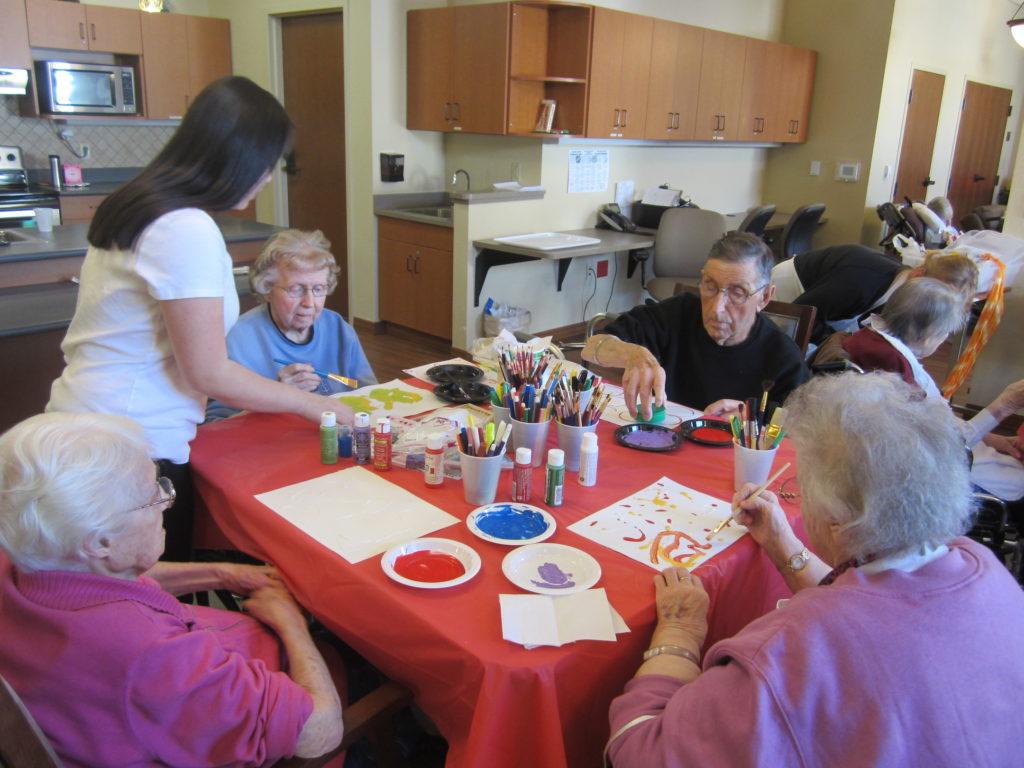By Jessica Sparacino, news correspondent
Many Massachusetts nursing homes are struggling to provide sufficient care for their dementia patients due to a lack of funding for necessary training and staffing. These deficiencies come in spite of relatively new regulations aimed at improving conditions for dementia patients.
“If you don’t have enough help, you can’t do the job you’re there to do,” Arlene Germain, co-founder and president of the Massachusetts Advocates for Nursing Home Reform (MANHR), said. “Training and staffing are the crux of all the problems we’re having.”
By mentoring members of patient advocate groups, working directly with state budget officers and the Department of Public Health and testifying in favor of legislation to strengthen regulations, Germain and the MANHR staff work to improve the quality of care for nursing home residents.
Their work paid off last year when Massachusetts amended its Licensure of Long Term Care Facilities to address dementia-specific training for workers in traditional nursing homes and Dementia Special Care Units (DSCUs), activities programs in DSCUs and guidelines for DSCU physical design.
“It seems like a good idea,” freshman nursing student Kate Thomas said. “There’s always going to be something new that can be improved upon, and that’s going to be regulated.”
However, according to a recent review conducted by The Boston Globe, some nursing homes are having difficulties adjusting to the new legislation in a timely manner. According to the study, in a random check of about 12 facilities, some had not completed the staff training for dementia care that is required of all nursing homes, which is already more than three months past its deadline. However, state regulators are not conducting spot checks for compliance, citing instead that they are already too busy with routine monitoring.
“We still have a ways to go in terms of implementing those regulations,” Alice Bonner, a Northeastern nursing professor with a background in nursing home advocacy, said. “Some nursing homes have gotten on board sooner than others.”
The nursing homes faring the best are by and large the ones that had already met the conditions laid out by new regulations before they became compulsory, according to Ellen Alperen, administrator of EPOCH Senior Healthcare at Chestnut Hill, a nursing home rated by the Department of Public Health to be in “good, high standing.”
“I thought we found it manageable because we had the resources,” Alperen said.
The process is not easy for every program.
“Some of these nursing homes are saying that they really had to invest a lot more and it’s taking them a longer time,” Bonner said.
According to Stephen Spano, an attorney specializing in elder law, one of the main issues is cost.
“There’s a big disparity in amounts of money that [nursing homes] get and when they get it, so many of them are struggling financially,” Spano said. “Every single nursing home I have been in, the people are struggling to give good care.”
While the process is lacking in speed, the state of Massachusetts has been working to remedy the situation, according to caregivers.
“[State officials] come in and survey us every year,” Alperen said.
Alperen also mentioned that these officials speak to nursing home residents and their families, so they should have an understanding of nursing home quality based on these site visits.
The state also pairs well-off nursing homes with others that have developing programs. According to Bonner, this “peer-to-peer learning” can be effective in improving every nursing home involved.
“Overall, quality measures for nursing homes are improving,” Bonner said. “But there are still opportunities for more improvement and we need to continue the oversight of all nursing homes and make sure that quality continues to improve.”
Photo courtesy Ann, Creative Commons









